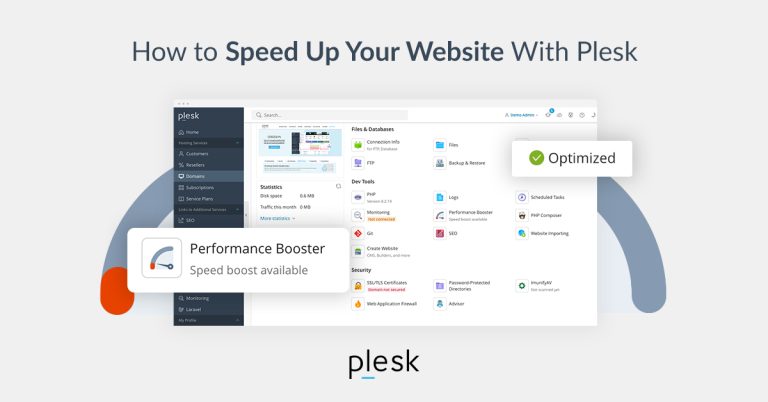Securing your data against threats like cyberattacks might seem daunting, especially when handling copious amounts of data.
But since data loss can happen at any time, it’s essential to be prepared to react with resiliency, and enterprise cloud backup data protection solutions can help.
It not only protects your data and prevents downtime but also gives you peace of mind knowing that if needed, data recovery can happen quickly to get your operations back up and running.
In this guide, we’ll discuss the benefits of enterprise cloud backups and what to consider when choosing a backup solution.
What Is Enterprise Cloud Backup?
Enterprise cloud backups are designed to back up enterprise workloads on servers in an off-site location to improve company resiliency. As attacks and costs rise, 80% of IT professionals rank availability and performance as important for businesses. Enterprise cloud backup solutions are built for large organizations that require robust cloud backups to secure operations-critical data and ensure business continuity.
On top of securing data in the cloud, enterprise backups provide quick data recovery solutions in case of a natural disaster, power outage, data breach, or equipment failure. On-site or traditional backup systems are especially vulnerable to physical failures, such as hard drive failure, putting you at risk of losing critical data.
Enterprise cloud backup solutions are often scalable and automated and include robust security measures that can help companies meet regulatory compliance requirements.
Cloud Backup vs Cloud Storage

While both solutions utilize cloud environments, cloud backup and cloud storage are very different.
Cloud Storage
Cloud storage allows users to store data on servers in an off-site location. Think of it as a virtual hard drive. This data is accessible regardless of the device used or location. One advantage is that it streamlines collaboration and file sharing. It also allows you to increase storage capacity when needed, unlike on-premises storage systems, which require you to purchase a new device when you need to expand.
However, cloud storage doesn’t employ automation and doesn’t include backup storage or recovery solutions.
The different types of cloud storage include block storage and object storage. Liquid Web offers both of these options.
Cloud Backup
This cloud service provides a backup strategy and guards against data loss in case of a natural disaster or malicious web attack. It stores copies of your data from your physical or virtual machines in an off-site location that you can access anywhere with an Internet connection. Moreover, it ensures automatic backups of your files and applications and creates a quick recovery solution in case of data loss.
Cloud backup services and backup software usually include security measures like encryption to protect data both at rest and during transit. The exact security measures vary by whether you are using a public or private cloud system.
Overall, cloud backups are mainly used to perform emergency recoveries and ensure resiliency, while cloud storage maintains a focus on accessibility.
Types of Backups

When choosing an enterprise backup plan, there are several types to consider. Below are the most common:
Full Backups
As the name implies, full backups entail making a copy of all of your data, including files, SaaS applications, and folders, onto a storage device. Note that the data is backed up into a single version in this type of backup strategy.
The main advantage of a full backup is that it will take minimal time to restore the data when needed. However, it also includes some downsides. For instance, running this type of backup requires a lot of data storage space, which can get expensive. Full backups also take longer to perform and require more bandwidth.
For this reason, companies tend to run full backups on a set schedule in combination with incremental or differential backups to save bandwidth and storage space.
It bears noting that all businesses should run a full backup as a baseline.
Incremental Backups
Incremental backups involve copying or backing up only the data that has changed since the last backup. For this strategy, the software backs up the most recent changes regardless of which backup type (i.e., incremental or full) you performed last.
This means an organization may perform this type of backup as frequently as needed for its specific needs. A company regularly running sales transactions would back up data more frequently than a company with data that changes only occasionally.
Since incremental backups copy smaller amounts of data, it results in a speedier backup using less bandwidth. However, multiple incremental backups could result in needing extra space to house them in addition to the full backup.
One downside to incremental backups is that recovery time may be slower, as it requires data to be pieced together from multiple backups.
Differential Backups
Differential backups lie between full backups and incremental backups. Basically, differential backups start with a full backup, and then subsequent backups will include all the changes made to the files.
As an example, let’s say a full backup was performed on Monday morning, and changes were made Monday night. On Tuesday, the differential backup will store all the changes made since Monday’s backup. If more changes are made Tuesday night, Wednesday’s backup will include the changes from both Monday and Tuesday nights.
This type of backup strategy doesn’t waste bandwidth on data that is already safely backed up. It also takes less time to complete a backup because there is less data to transfer. And because you will require only the last full backup and the latest differential backup to perform a data restoration, you won’t need as much data storage space.
Best Practices for Cloud Backups

Here are a few things to be mindful of when backing up enterprise data to the cloud:
- Test your backups — The last thing you need is to discover your data protection solutions aren’t working when you need to recover something. To protect against this, test your backups to ensure all is working properly.
- Implement staff training — Even though enterprise cloud backup services include robust security mechanisms, be sure to train your staff to identify potential cybersecurity threats like social engineering attacks. The best cyberattack and ransomware protection is often a well-trained staff that knows what to watch for.
- Implement the principle of least privilege — This principle ensures that only authorized users can perform backups. This principle means that you only allow users access to what they need to perform their job duties rather than setting blanket access levels.
- Follow the 3-2-1 backup rule — This backup strategy involves having three copies of your data stored on two different storage devices with one backup copy in a remote location. This rule can also be implemented with cloud services if your provider has geographically diverse data centers.
Benefits of Cloud Backups
Using the cloud as a backup strategy and data protection solution offers strong benefits for organizations of all sizes, from small businesses to large enterprises.”
Data Protection
One key benefit is the optimal protection it gives you. For instance, suppose disaster strikes or your system gets compromised. Having enterprise cloud backup means you can quickly get your data and online presence up and running again, regardless of the condition of your physical locations.
As mentioned earlier, local backups are vulnerable to natural disasters, local events, and civil unrest. Hurricanes, wildfires, riots, or even a local power outage can put your data at risk. And should data land in the wrong hands, the consequences could include lawsuits, financial losses, and long-lasting reputational damage.
Cost-Effectiveness
Another significant benefit is that it’s cost-effective.
You won’t have to purchase hardware like on-site servers or invest in ongoing maintenance. In addition, there won’t be a need to look into additional hardware or backup software when you outgrow your current backup storage capacity. Instead, you can offload infrastructure costs and upkeep to your service provider.
Scalability
As mentioned earlier, cloud backup doesn’t require replacing hardware as your storage needs or backed-up data increase. That’s because cloud services allow you to quickly scale in response to high demand. While extra resources carry some extra cost, it is minimal compared to adding physical capacity at your location. You also won’t need as much time to upgrade.
Accessibility
Cloud data is accessible from any Internet-connected device, which means you can access your data from anywhere. This also makes it easier for remote teams to collaborate. Private clouds more strongly secure remote access than public clouds.
Automatic Backups
Automatic backups save time and lower risk as opposed to traditional backups. Cloud service providers typically offer the ability to preset automatic backup schedules to fit your needs. It also means you won’t have to worry about time spent on manual backups, so your IT team can devote more time to focus on high-priority tasks.
What To Look For in Enterprise Cloud Backup Solutions

When evaluating enterprise cloud backup services, there are several items to take into account before making a decision.
Security
So to protect data against potential breaches, ransomware attacks, and other cloud backup security issues, enterprise backup solutions often provide advanced security features. These features include encryption, access controls, replication, intrusion prevention, and authentication. Providers often offer a choice of public cloud or private cloud plans and add-on features and services, such as Acronis Cyber Backups, to allow companies to customize their security levels.
For enterprise backups, physical security measures are also vital. Protections such as motion sensors and surveillance cameras help ensure maximum protection for your company’s data.
Disaster Recovery
A disaster recovery plan is vital for enterprise companies. For instance, how quickly can your system recover from a natural disaster or malicious attack?
Your backup solution needs to provide quick and efficient disaster recovery.
Key elements of a disaster recovery plan include a recovery time objective (RTO) and a recovery point objective (RPO). These metrics refer to how long your system can be down and how much data loss you can tolerate.
Backup Frequency
The frequency of backups depends on the type of data you’re backing up. And companies may have different schedules for different parts of their business. An ecommerce division might back up sales hourly, while an HR division might only need to back up weekly.
Backup scheduling flexibility and limits vary by provider. It is important to pick a provider that offers you the freedom to schedule backups that fit your needs.
Customizable
The ideal enterprise cloud backup provider should give you the ability to customize your cloud backups and storage to fit your specific needs. For instance, Liquid Web allows you to control your scheduling options and configure log storage. They also include a recovery team around the clock to assist you with your backup needs whenever they arise.
Compliance
Enterprise backup services should also comply with security protocols and meet requirements for companies that must comply with industry-standard regulations like PCI DSS, SOC 3, and government rules like HIPAA. The price of noncompliance for covered enterprises is high, so you won’t want to ignore compliance standards.
Customer Support
Enterprise backups are critical to protecting your data. And your backup solution should be accompanied by reliable technical support, regardless of your operating system. Skilled technical support for Linux or Microsoft Windows apps should be available. Strong technical support helps to reduce your IT costs and helps you recover data faster in case of a disaster or targeted attack. In addition, multiple channels of support like phone and email should be available.
For example, Liquid Web provides industry-leading support such that it earned a reputation as The Most Helpful Humans In Hosting®. It also provides fast response times — under 59 seconds.
Final Thoughts: Choosing the Best Enterprise Cloud Backup Solution
On the whole, enterprise cloud backup is a great way to secure business-critical data, ensure its accessibility, and scale with ease.
If you’re looking for a reliable enterprise cloud backup solution, Liquid Web has you covered. Our cloud server backups include multiple layers of protection and painless recovery options. On top of that, you’ll also get multiple storage options and 30-day log retention.
And if that’s not enough, we guarantee 100% network uptime.
Enterprise cloud backup solutions fit perfectly with fully managed enterprise hosting. We provide enterprise hosting with built-in redundancy, load balancing, and other powerful features.





